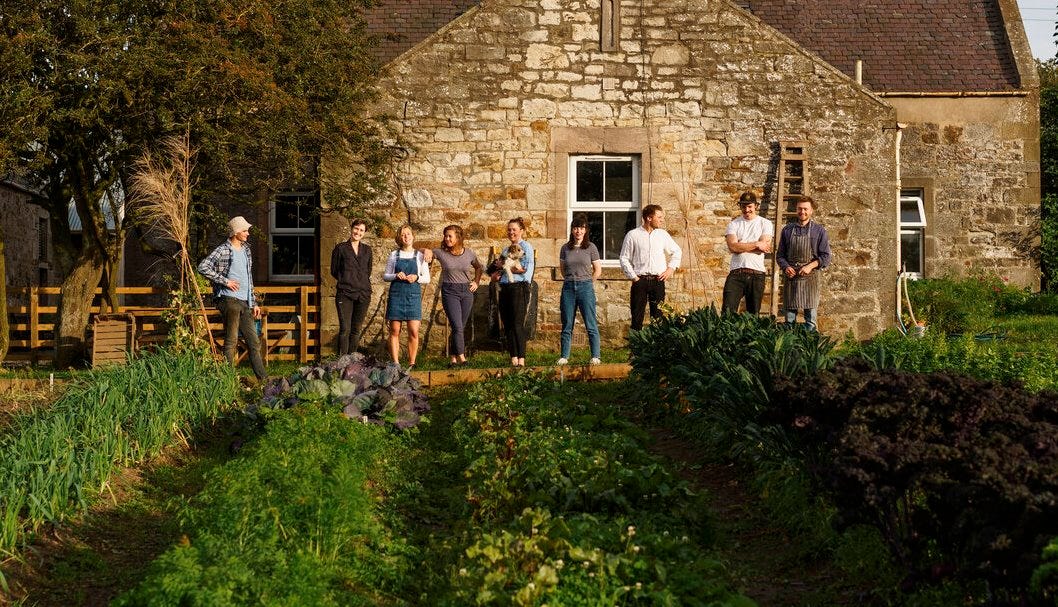Field work in Capital that can change our access to fresh food
The farms bringing abundance back to Edinburgh’s fields, report by Sarah McArthur
Rolling fields of neatly planted wheat are idyllic to many of us, harking back to a simpler, better way of life. But they are in fact not as old, or as “natural” as we might think. In recent years evidence has emerged that modern food production systems are damaging to local ecosystems, the global climate, and also to farmers.
“If you’re pouring agrotoxins onto your land, that is going to go into your waterways so you’ve then poisoned your water as well as your soil, and you’re obviously going to be exhausting the land… there’s no legacy for the future there in terms of being able to farm generationally,” says Kate MacDougall of Lauriston Farm.
As the UK has seen the wettest 18 months on record, cereal production has dropped hugely and farmers have protested outside parliament, warning of a crisis if the industry’s plight continues to be ignored. The pressure on the farming industry is not new - in 2018, surveys found that the average farmer worked 65 hours per week and took only 11 days of paid leave in an effort to keep their businesses going.
For households, fresh food is becoming harder to find and afford, and we talk increasingly of “food deserts” - areas where people have limited access to healthy, affordable food due to lower income, lack of food retailers or transportation issues. In fact, the term food desert was introduced in the early 1990s in Scotland.
Clearly, the way that we grow food needs to change, for environmental and social reasons. In our wee corner of the UK, from the Forth to the Pentlands, there are growers who are revolutionising the way we farm, and bringing sustainable, really good food back to Edinburgh.
The Free Company - revitalising a family farm and a rural area
“We want to bridge that gap between production and consumption, and not only show how small-scale sustainable farming works but also… give people a really good time, and bring a bit of life back into a rural area.” says Charlie Buchanan-Smith, who, with his brother Angus, runs the Free Company in Balerno.
Charlie and Angus saw their own family dairy farm go bankrupt as children in 2002. In 2016, armed with new knowledge of sustainable farming techniques, and some handy cheffing experience, the brothers took on the farm with friends and transformed it into a “mixed regenerative farm” with a rural restaurant.
“We’re trying to have as much biodiversity as possible integrated in and around our farming model… To try to produce food in an ecosystem that’s in equilibrium,” says Charlie. In the conventional farming system, a 170-acre farm like the Free Company would focus on no more than one crop or animal, but Charlie and Angus have cattle, sheep, pigs and a vast variety of vegetables on their land. While this seems inefficient, Charlie explains that in the long term it is far better for food production. A varied ecosystem protects itself against pests and diseases, reducing the risk of crop failure. The combination of crops and livestock also means that the farm is entirely circular; the animals provide all the fertiliser the land might need, and the land provides all the food for the animals.



